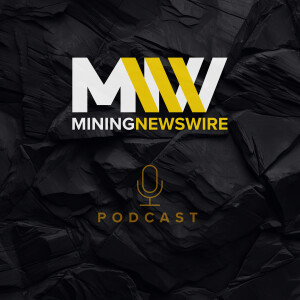
InvestorBrandNetwork Financial Data Used for House Committee on Financial Services Congressional Testimony Exhibits
 2020-09-17
2020-09-17
Additional information can be found at:
· House Calendar
· IBN Congressional Exhibit
· House Documents by Event
On Thursday, September 17, 2020,Subcommittee on Investor Protection, Entrepreneurship, and Capital Chairman Sherman and Ranking Member Huizenga will host a virtual hearing entitled, “Insider Trading and Stock Option Grants: An Examination of Corporate Integrity in the COVID-19 Pandemic."
Witnesses for this one-panel hearing will be:
• Rick Claypool, Research Director, Office of the President, Public Citizen
• Jill Fisch, Distinguished Professor of Business Law and Co-Director of the Institute of Law and Economics, University of Pennsylvania Law School
• Jacob S. Frenkel, Chair of Government Investigations and Securities Enforcement, Dickinson Wright
• Granville Martin, Senior Vice President and General Counsel, Society for Corporate Governance
Purpose
Over 190,000 Americans have lost their lives in the coronavirus disease 2019 (COVID-19) pandemic. As development of the COVID-19 vaccine continues, media reports indicate that pharmaceutical company insiders have personally profited from announcements related to their affiliation with the Trump Administration’s Operation Warp Speed (OWS), a program the President launched earlier this year. Similarly, other insiders profited by announcing a letter of interest (LOI), signed as an initial step towards the company receiving a loan under to the President’s May 14, 2020 Executive Order (Executive Order). Those profits have been recognized in various forms, including stock option awards and personal securities transactions. This hearing will examine the use of such compensation schemes and the state of corporate integrity during the COVID-19 pandemic.
Insider Trading and Stock Options Awards
A. Insider Trading
There is no Federal statute defining “insider trading” — the law of insider trading has been developed on a case-by-case basis by the courts over several decades, and insider trading is prosecuted under the general securities fraud section of the Securities Exchange Act of 1934. The general fraud section prevents market participants from using or employing any manipulative or deceptive devices when trading securities. Insider trading would constitute manipulative or deceptive devices and, in general, refers to undisclosed trading on material, nonpublic corporate information by individuals who are under a duty of trust and confidence that prohibits them from using such information for their own personal gain. In the context of insider trader, employee stock options present a peculiar dilemma.
B. Spring-Loading Options
Employee stock options give recipients the option to buy or sell company stock. When stock options are intentionally issued before a public announcement that will increase the company’s share price, this is referred to as “spring-loading.” By granting executives stock options shortly before a major public announcement, or timing a public announcement to occur just after the granting of stock options, the options may increase in value. Companies who engage in spring-loading options may not be guilty of insider trading, unless the option holder buys or sells company shares while in possession material nonpublic information. Empirical analysis indicates that public company CEOs have appeared to manipulate stock prices to increase compensation through the granting of stock options.
C. Trading Plans Under SEC Rule 10b5-1
Employers may also buy or sell securities pursuant to a trading plan under SEC Rule 10b5-1.10 SEC Rule 10b5-1, ostensibly, exists as a safe harbor, in that insiders who purchase or sell company securities under a qualified 10b5-1 trading plan will have an affirmative defense to insider trading. One requirement of SEC Rule10b5-1 is that qualified plans must be entered into when the insider is not in possession of material nonpublic information. Revisions to the plan must also be completed while the insider is not in possession of material nonpublic information.
III. Corporate Integrity and Profiteering in the COVID-19 Pandemic
A. Novavax, Inc.
The Trump Administration’s OWS awarded $1.6 billion to Novavax, Inc. (Novavax), a small
pharmaceutical company that, reportedly, had not brought a single vaccine to market throughout its entire 33-year history. Novavax stock, which had been trading at less than $4 per share at the start of the year, soared to almost $190 per share by August. The small pharmaceutical company awarded its executives stock options that would pay out even if the company fails to bring a vaccine to market. Executives would be able to exercise those options a year after the company starts a Phase 2 trial.
More Episodes
Create your
podcast in
minutes
- Full-featured podcast site
- Unlimited storage and bandwidth
- Comprehensive podcast stats
- Distribute to Apple Podcasts, Spotify, and more
- Make money with your podcast
It is Free
- Privacy Policy
- Cookie Policy
- Terms of Use
- Consent Preferences
- Copyright © 2015-2024 Podbean.com





